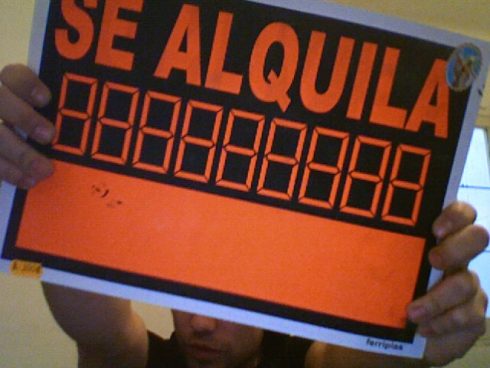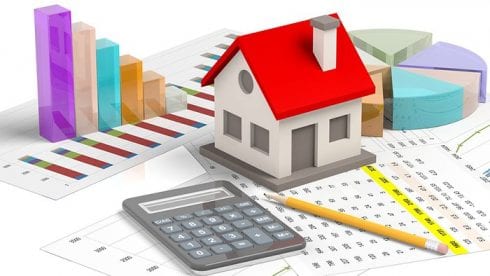A LOT has been written about the new housing law that was introduced at the beginning of 2023. I have offered my own take on this law elsewhere. But not a lot has been written about national standards for real estate agencies and agents since the law came into effect. This is something that is important to me for obvious reasons.
Real Estate Regulations
The need for industry regulation
Back in May of 2023, there was some noise about this subject, particularly from frustrated API representatives, a national real estate body providing training and certification for real estate agents across Spain. But since then, aside from Valencia, there has been almost total silence about the regulation of the industry. In September, there was an interesting interview with the new head of the Federation of Associations of Real Estate Companies (Fedei), Miguel Angel Gomez Huecas, on Idealista.com.
Professionalisation of the real estate industry
As Gomez noted in the interview, the industry must be professionalized as it now represents 12% of GDP – or €42 billion. There are between 25,000-30,000 real estate agencies employing probably 90,000 salespeople.
“…it cannot be that anyone who arrives without knowledge or experience in the sector can begin to sell houses…”
Challenges in implementing national standards
Back to the housing reform law. The basic story is that early in the process of developing the new housing law; real estate industry representatives met with the government and/or provided them with briefs about what they wanted to see in any new law. One of the main points they all raised was the need for national standards and regulations. At that point, the only region in Spain with mandatory real estate agent licensing was Catalonia. Since then, Valencia has also introduced mandatory licensing and a public registry, about which more in a moment.
The struggle for mandatory registration
At first, the government seemed to be on board with the API, others, and the opposition parties. An early draft of the bill contained a clause, article 30.4, which called for national registration. But somewhere between cup and lip, things changed. Sometime after the first consultations, industry reps were called into a meeting with the Ministry responsible and told that there would be no national standards set because they were ‘anti-competitive’. They were offered a non-mandatory registry.
Impact of voluntary registration
The industry representatives refused because if the national law mandated a system of voluntary registration, it would negate the mandatory registration law in Catalonia and the upcoming law in Valencia. In the end, there was no clause, no regulation, nothing. The attempt to include the professionalisation of the real estate industry was scuttled for reasons that still seem murky.
The current state of real estate regulation in Spain
Why does this matter? Currently, outside of the aforementioned regions, anyone can declare themselves a real estate agent in Spain, set up a web page from their bedroom and seek out clients. You don’t need training, certification, liability insurance, or money in the bank. And voluntary registration and accreditation aren’t working. As Gerard Duelo, the president of the COAPI general counsel, noted:
“Catalonia has since 2011 had a mandatory registry in which about 8,500 agents are registered, while the Community of Madrid, where the registration is voluntary, there are only 800 agents, “when we know that about 10,000 are operational,” [Duelo said].”
Efforts to regulate the industry
Of course, there are many legitimate real estate agents out there. Many of us make extra efforts to regulate our industry and ensure the highest standards. For instance, my agency, Terra Meridiana, and I have been members of the Leading Property Agents of Spain for over 15 years. We group together 47 quality agencies in the Costa del Sol in order to ensure the highest standards. The LPA has also been involved in lobbying the Junta de Andalucía to set regulations and standards for the industry.
Regional standards in Valencia and Catalonia
As I mentioned above, there are currently standards in place in the autonomous communities of Valencia and Catalonia. For over a decade, Catalonia has had such standards, while Valencia implemented mandatory licensing and registration in 2023. Being a real estate agent in Catalonia requires you to complete the proper training at a university or in an accredited real estate training program. You must also have a physical office and a minimum of €600,000 in liability insurance. There are also established codes of conduct that must be followed.
In Valencia, the law is basically identical to the law in Catalonia. These set a good foundation for best practices in Spain to overcome the amateurism that the current national law encourages.
Looking towards a better model
The model that is followed doesn’t necessarily have to be a national model either. In Spain, there are always challenges to creating national standards because of the political structure and history of the country. The Autonomous Communities tend to be very jealous of their jurisdictions and don’t want the national government stepping on their toes. For this reason, governments at the national level tend to want to avoid stoking the fires of this debate.
However, with a little more courage, the government could have worked out a means to set basic but mandatory common standards that the regions could have refined to fit their own circumstances. That would have moved the ball forward to overcome the unevenness and inertia across the country.
Comparing with the United States
The United States also has a very federal structure, for instance. No national registry or standards have been established. Yet every state in the country has managed to establish mandatory standards and certifications that are generally quite similar. California, the largest state by population at 38 million, has similar regulations to those in Valencia and Catalonia. You must be over 18, meet certain training requirements and renew your real estate license annually. There is no insurance requirement, though it is strongly encouraged.
They also distinguish between real estate salespeople and more experienced, more highly trained brokers. Salespeople are only permitted to work under the supervision of a broker. Any violations of state regulations get a black mark for the broker that can be searched easily on the state’s Department of Real Estate website.
A proposed model for Spain
I personally would like to see a combination of the California and Catalunya models, with the requirements of Catalunya, plus with salespeople being employees of brokerages and not simply autonomous agents. The latter helps ensure that an agency’s owners take responsibility for what their salespeople are doing.
It also establishes a level playing field for agencies in terms of running costs. It is no secret that the majority of agencies in Spain ’employ’ autonomous agents on a full-time basis without the significant costs of a full-time employee. Forcing agencies to bear the cost of employing their staff would probably cull the number of agents by more than 50%; this would probably be the most effective regulation imaginable. In addition, real estate brokerages should have physical offices, websites, a minimum cash amount permanently held in escrow against deposits, and industry-standard deposit contracts.
Conclusion: The future of real estate regulation
All these things are much-needed measures in an industry that continues to grow in importance to the Spanish economy with each passing year. In the meantime, the LPA will continue to lobby in Andalusia for the government to create mandatory standards. And I’m sure that the API will do the same at the national level.
READ MORE:
- Property ‘scam’ latest in Spain: Three arrests after buyers in Andalucia and Murcia paid up to €55,000 for homes…
- Major crackdown on illegal property renovations in Spain: At least 50 people are being investigated across Malaga province
- Revealed: The hottest property locations on Spain’s Costa del Sol – where prices have risen by up to 92%








